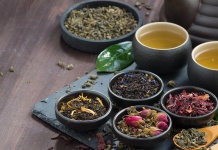According to a new study released by Consumer Reports, 10% of apple juices and grape juices contain more arsenic than the 10 parts per billion allowed in U.S. drinking water (bottled or tap).
Consumer Reports tested 88 samples of fruit juice including several well-known brands such as Walmart, Mott’s, Walgreens, and Welch’s, and 1 in 10 exceeded “acceptable” arsenic levels.
Long-term exposure to arsenic—an odorless, tasteless poison—has been linked to cancer of the bladder, skin, kidney, nasal passages, liver, and prostate.
Lead Levels Also Exceeded Standards
In addition to arsenic, lead in juice was also a problem. A full 25% of the samples—including Gerber, Trader Joe’s and Minute Maid—exceeded 5 parts per billion of lead in juice (the “acceptable” standard set for bottled water by the Food and Drug Administration). 
The U.S. Environmental Protection Agency warns that lead in drinking water can cause delays in physical and mental development.
“We’re not telling parents to freak out or throw out all their juices, but we are concerned about the public health consequences,” announced Michael Hansen, senior scientist at Consumer Reports. The magazine warned that children are especially at risk due to lower body weights. Not only that, but many parents offer their children juice regularly as a “healthy” beverage.
But Juice Isn’t Healthy, Anyway!
In reality, conventional fruit juice—even without added sugar or elevated arsenic or lead—is not a good choice for adults or children. It’s loaded with empty calories in the form of fructose, and a growing body of evidence links juice with health problems ranging from obesity to dental decay, and more.
“All of these beverages are largely the same. They are 100% sugar,” says Dr. David Ludwig, an expert on pediatric obesity at Children’s Hospital Boston. “Juice is only minimally better than soda.”




